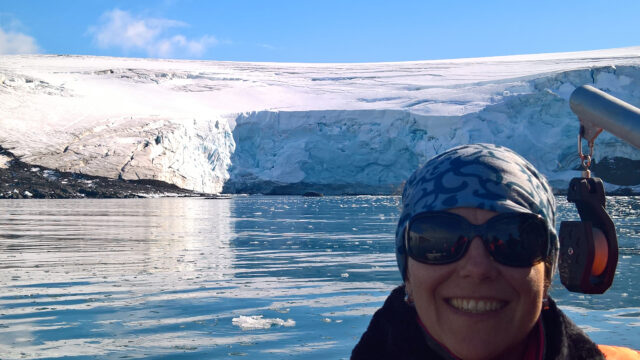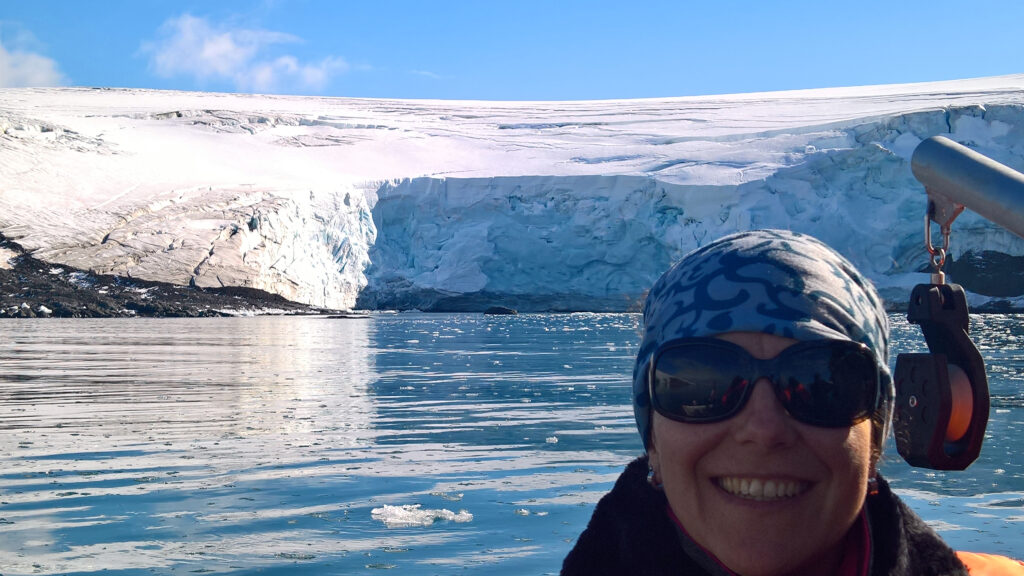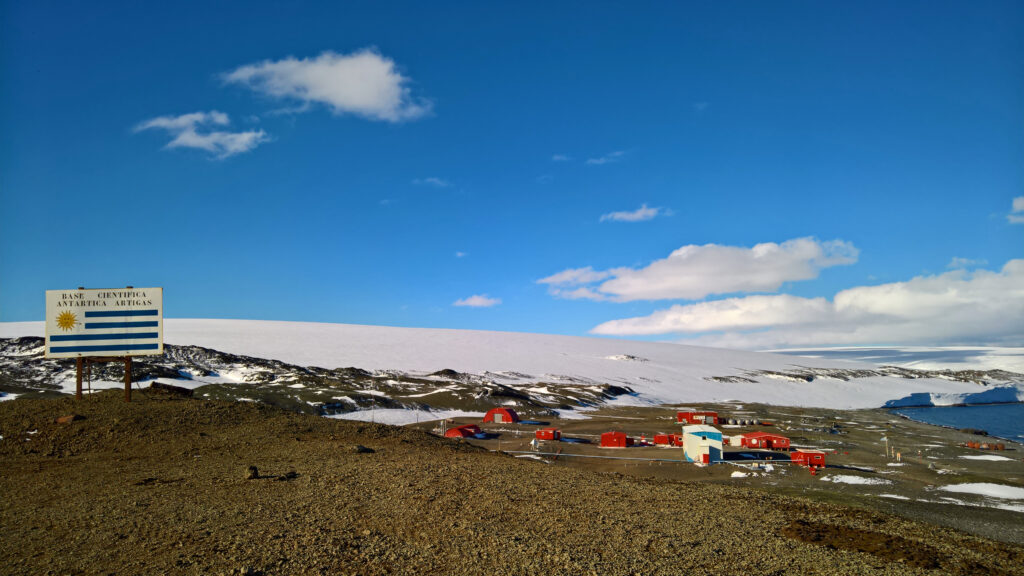
Natalia Venturini, Professor at the Department of Oceanography & Marine Ecology, Faculty of Sciences, University of the Republic (FCIEN-Udelar) in Montevideo, Uruguay applied for Antarctic Science bursary funding in 2018. Her successful funding allowed Natalia to visit the State Key Laboratory of Estuarine and Coastal Research of the East China Normal University (ECNU) in Shanghai, China to work in collaboration with Professor Jing Zhang. During her visit she performed total hydrolysable amino acids (THAAs) analysis in suspended particulate organic matter (POM) in Antarctic glacier runoff and coastal surface waters, to assess if changes in food quality and availability are related to mixing processes of POM from different sources and/or to biogeochemical transformations of POM such as degradation state.

Based on the comparison of two consecutive austral summers, results provide evidence of the negative impact of glacier retreat and increased meltwater runoff on POM features in Collins Bay, King George Island, Antarctica. Two different settings were recognized. In February 2016, under cold weather conditions, reduced glacier melting and meltwater runoff, marine fresh phytoplankton and ice-associated POM with the dominance of diatoms, bacteria, zooplankton and ice-associated fauna were the major components of POM. In contrast, in January 2017 under warm weather conditions, enlarged glacier melting and meltwater runoff, resulted in an increased terrestrial contribution to suspended POM. The lower degradation state of suspended POM in February 2016 than in January 2017 was evidenced by THAAs composition and other biogeochemical indicators. Marine POM provides protein-rich food to higher trophic consumers, while terrestrial POM is a low-quality food resource for marine organisms. Therefore, if glaciers continue to melt because of climate change, an impoverishment of the nutritional value of POM may be predicted, impacting food webs of coastal regions of Antarctica.

These results can be relevant to other Antarctic coastal marine ecosystems. ASIB funding was very useful to boost the first steps of the research project “Effects of Collins Glacier melting on the coastal marine ecosystem” supported by the Uruguayan Antarctic Institute (IAU), for which Natalia is now responsible and has expanded substantially, allowing the incorporation of new young researchers.
VENTURINI, N., ZHU, Z., BESSONART, M., GARCÍA-RODRÍGUEZ, F., BERGAMINO, L., BRUGNOLI, E., MUNIZ, P., ZHANG, J. 2020. Between-summer comparison of particulate organic matter in surface waters of a coastal area influenced by glacier meltwater runoff and retreat. Polar Science 26: 100603. https://doi.org/10.1016/j.polar.2020.100603
